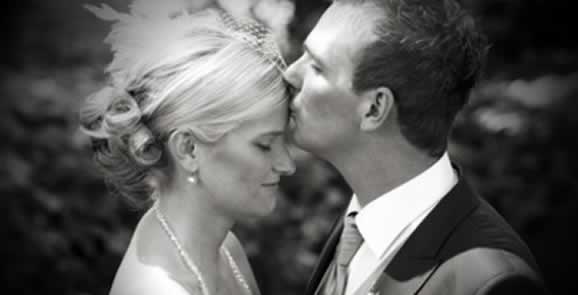Best-Selling author Lee Strobel on his book, Surviving a Spiritual Mismatch.
Lee, how was the experience of writing a book with your wife?
Leslie and I had a great time writing this book together. There were times when we had long conversations, trying to remember things that happened when we were spiritually mismatched and tried to recall things back to our dating years that might be relevant.
So we really had a great time together, reliving this stuff. Even though it was hard, we had a good outcome.
Should believers date non-believers even if they don’t intend to get married?
I really don’t think so. I think it’s dangerous for Christians to be dating those who are not followers of Jesus. The reason is, the bible says specifically; don’t become unequally yoked to a non-believer (2Cor 6:14).
When we’re dating someone, we’re often heading in a direction of more intimacy, toward more time together, and eventually perhaps marriage.
What happens is the Christian is faced with a choice: Do I follow and marry this person I’ve come to love or do I live out my faith and honor and follow God in His teaching not to marry a non-Christian. You don’t want to put yourself in that position.
Often what we find is when men and women are dating, the man who is wanting to get the marriage thing done will feign spirituality a bit and try to win over the woman by praying and expressing an interest in church and ministry. Not necessarily overtly lying, just expressing interest in those areas in which his girlfriend is interested.
Consequently, the woman is fooled into thinking that the person she’s been dating is really a Christian when he may not be. Your judgment gets clouded when romance becomes a factor. We encourage Christians at any level, not to get involved with dating non-believers.
You have used the term conjugal evangelism. What is that?
Conjugal evangelism is trying to convert someone through marriage. It’s knowingly dating a non-Christian; the hope and belief that you will influence that person to become a Christian.
Through interviewing lots of people for this book, we’ve found it’s more likely the woman is the Christian in these situations. She is more likely to lose her faith than the man is likely to gain faith. Often you have a reverse evangelism taking place. That’s a dangerous position. A Christian shouldn’t want to put themselves in to.
We think conjugal evangelism is very dangerous. You deceive yourself into thinking the other person might be more spiritually receptive than they might be because your judgment might be clouded by romantic feelings or chemistry with the other person. Our counsel is that Christians should not even consider that.
I’ve found even after we speak on this topic and we talk about all the turmoil, pain and conflict Leslie and I had when I was an atheist and she was a Christian, people will still come up afterwards and say, “I understand that. That’s really important, but I’m dating this guy and we’ll be married soon and he’s really close to becoming a Christian and I think if we just get married I’ll be able to influence him.”
I want to shake them and say, “Read my lips: Do not become unequally yoked with a non-believer!” The bible says it for a reason; to protect us from the kind of pain and heartache Leslie and I endured for two years of our marriage.
But aren’t we honoring God by following the Great Commission and reaching out and sheparding and nurturing people we love?
There’s no question we should be concerned for the eternity of every person. The best way to handle that with someone is not to get involved in a dating relationship, not to violate the biblical injunction against becoming unequally yoked with a non-believer.
It’s to say, I care about this guy. He’s not a Christian; I’m concerned about his eternity. I need to arrange for someone of the same gender, another guy, to meet him, to get along side him and mentor him spiritually and share Christ with him.
Make those kinds of arrangements instead of yourself getting involved in something the bible says is very contrary to what God wants for your life.
You mention we can learn to thrive despite our spiritual differences. What do you mean by that?
You get married to a person for a lot of reasons. There are things you love about that person. There are things you do in common you enjoy together. When you have a spiritually-mismatched situation and conflict begins to come into that relationship, you need to identify those things you love about your spouse and things you love to do in common ? and build on those.
Identify those things and say, “I will spend effort and energy building into those ways in which we can build bridges between us instead of letting our spiritual mismatch cause us to drift apart.
The other thing you can do is decide you will live out your faith unilaterally as far as you are able to do it. You can decide to have a Christian marriage to the extent that I can unilaterally live out what my faith means to me. There will be those times where you have conflict with your spouse, but if you can identify and minimize those, you’ll find you can thrive in the midst of your spiritual mismatch by identifying those ways you can grow spiritually and at the same time reaching out to your spouse and building on common ground.
So, assuming that we want to live out our faith unilaterally, is it okay to attend different churches?
I don’t think it’s healthy to attend different churches. Whether you’re Christians or both seekers or one of you is a seeker ? I would identify a church where both of you can grow and connect with the spiritual methodology and ministry philosophy of a church and attend that church together.
Attending different churches causes problems. One person may encounter something in church ? through a song, a word in the message ? that has moved them deeply, and yet the other spouse wasn’t there to experience that. So you’re in a position of having to explain that later to the other person and things get lost in the translation. It’s better to experience something together so you have something to discuss and become the fodder to spiritual conversation in your marriage.
Lee, what should a spouse do when the other insists that attending church is out of the question?
Sometimes there are spouses who put down their foot and say I don’t want you going to church and I don’t want our children going to church. When that happens, it’s important to understand you still need to grow spiritually and you need spiritual input in your life.
If you can get that spiritual input without going to church on weekends and thus introducing all kinds of conflict into your marriage, that’s one way to approach it.
God’s desire for you to attend church and to worship Him is not based on you sitting in a certain place in a certain room with a certain group of people in a certain pew and doing church on a Sunday morning. He wants your heart to be devoted to Him. He knows you desire to worship Him. He knows you desire to spend time with other Christians.
He also knows if you pursue attending church against the desires of your mate you could blow the marriage apart. I don’t think God wants that. My advice would be to say, “Can you reach a compromise?” Can you convince your spouse that you have your beliefs, therefore you should be able to attend church if for no other reason than to grow in what you find to be true in your own faith? Maybe he’ll buy into that, maybe he won’t.
If he doesn’t, I don’t think it’s worth blowing up the marriage over. It’s more important to find other ways to get spiritual input into your life and continue to pray for your spouse. Don’t make this the decision that lands you in divorce court.
What might be some effective ways to evangelize to our unbelieving spouse?
When you’re married to someone who’s not a Christian, it’s a very dicey situation.
1Peter 3:1 says if you’re a woman married to a non-believing husband, he most likely will be won over by your behavior, “By the purity and reverence of your lives.”
There will be things your non-Christian husband will see in your character and values that will intrigue him and he will find winsome and find attractive. It might cause him to ask spiritual questions. This is exactly what happened with Leslie and I.
She became a Christian and I began to see changes for the good in her values and character and the way she related to the children that I found attractive. It was her very behavior, influenced by her relationship with Christ that eventually prompted me to give church a try. That’s when I heard the gospel, that’s when I began to use my legal and journalism training to systematically investigate if there was any credibility to the Christian faith. I write about that in my book, The Case for Christ .
It was Leslie’s change in her relationship with me and the children, which I found so winsome and attractive, that caused me to at least investigate this God she said was responsible for these changes in the first place.
1Peter 3:15 says we always need to be prepared to give an answer to anyone who asks us to give the reason for the hope that we have. We need to be prepared to share our faith verbally when those opportunities arise.
If Leslie had tried to debate me on theological fine points as an atheist or new Christian, I would have erupted inanger. We would have argued, it wouldn’t have taken us anywhere. It was more important for me to see Jesus Christ lived out in my spouse than it was to hear words about Him.
Having said that, there may be those instances where you do have an opportunity as the Christian in a marriage to talk about the Gospel verbally with your spouse; Leslie certainly did that with me. But I think Peter’s right: The most likely way your spouse will be influenced for Jesus to see Jesus in you.
I don’t think we should unnecessarily introduce conflict, anger and turmoil into the relationship. When I would see Leslie studying the bible I would go ballistic. I would belittle her and accuse her of buying into mythology, make believe and bad history. It would have led to an argument.
I think it was wise for Leslie to say, “I can still have my spiritual input under the radar screen. I can study the bible when Lee isn’t around. I can get the spiritual input I need in my life without introducing conflict into the relationship.
The bible says, be wise as serpents and gentle as doves. I think that’s being wise and gentle in saying I don’t want God to become the barrier between us. If I can minimize conflict just by choosing a time that doesn’t interfere with my spouse, that’s a wise thing to consider.
How can a mismatched couple stay connected and even survive in the midst of continual spiritual conflict.
I think there are three things a couple in an unequally yoked marriage needs to do:
Number one, continue to grow in the relationship with Christ. That might involve bible studies or devotions that are under the radar screen so they don’t disrupt the marriage. It’s hugely important for the Christian to continue to grow in the relationship with Christ because it’s Christ working through you and changing you and your values, character, relationships, attitude, philosophy and world view that will minister most powerfully to your non-believing spouse.
The second thing you need to do is find a spiritual mentor. Find another Christian of the same gender who can be a confidant, an encourager, and a prayer partner, who can speak truth to you and not let you fall into a me and God versus my husband mentality. A mentor will challenge you when you need to be challenged and befriend you through it all so you can remain strong in your faith and even thrive even in the midst of the mismatch.
The third thing is to find those areas of common ground you have with your spouse and build on those. You married this person for a reason. What were those reasons? When you identify those reasons and you say, “There are still things we love to do together regardless of who’s a Christian and who isn’t a Christian. Let’s continue to do that so we don’t further drift apart.”
How does a person choose a spiritual mentor?
First, ask God to bring a mentor into your life. Pray specifically that He will give you an encourager, a friend who can help deepen your faith and carry you through these difficult times.
If you’re a woman, go to the women’s ministry at your church. If you’re a man, go to the men’s ministry. See if there’s someone they know who would enjoy having a mentoring relationship with you. Look for a person with spiritual gifts of encouragement, sheparding, discernment, wisdom and teaching. And it might help if the person had once been spiritually mismatched; That is not necessarily a prerequisite, but would give them extra sensitivity.
If you can’t find an individual mentor at the church, you might try a small group of Christians. Especially, with Christians who themselves are unequally yoked. A small group can be a great environment to receive support and prayer.
Also, some parachurch organizations can be helpful too. For example, Christian women’s clubs that my wife Leslie was involved in, is a place where she met women who were able to build in to her and encourage her. Christian Businessman’s Committee [CBMC] have local chapters where mentoring is part of the Operation Timothy program that they provide.
I would say do whatever it takes to find that person and invite them to be a significant part of your life.
At what point might a couple seek outside help such as counseling?
If the non-believing spouse is open to seeing a Christian counselor, then this is an option that can be very helpful whenever there is an ongoing pattern of turbulence or conflict in a relationship.
If the spouse is not interested in going to a Christian counselor, I wouldn’t advise the Christian to enter into a counseling relationship with a non-Christian psychologist. I don’t think that person will have the insight to provide the kind of spiritual assistance the Christian will need.
A lot of non-believing men are willing to go to a trained, certified counselor, who is also a Christian. They are willing to listen to what that person has to say as long as they don’t feel ganged-up on. They will get a third party who will provide wisdom, advice and insight for cooling things when the relational temperature gets too hot.
Lee, how should we pray for an unbelieving spouse?
Praying for an unbelieving spouse is a huge, important part of an unequally yoked marriage. The Christian wants to continue to raise up their spouse to the Lord, in all areas. In our book we provide a prayer guide to get a Christian started praying in a holistic, balanced way for their non-believing partner. We have verses and suggestions to help them get started.
One of the prayers Leslie prayed on a regular basis for me was Ezekiel 36:26. This was a verse the women at the church gave Leslie when she told them she was married to a hard-headed, hard-hearted journalist who she had no hope of ever becoming a Christian. That verse says, “Moreover, I will give you a new heart and put a new spirit within you. I will remove from you your heart of stone and give you a heart of flesh.” Leslie made that her verse that she would continue to pray for me. And sure enough, God did lead me into a relationship with Him and softened my heart and softened my attitude.
As Leslie and I discussed our relationship, we can trace back times in our marriage where I was unusually open to spiritual input that she could trace directly back to prayers she was praying for me.
Also in our book, we talk about the eight “A”‘s of prayer. Avoidance, Approach, Adoration, Acknowledgement, Admitting, Asking, Aligning and Acting. This is a way to pray not just in a one note prayer, but in a balanced way that can raise concerns to God over a long period of time. And to be aware there will be people who will pray for their spouse their whole life and their spouse will never become a follower of Jesus. We have to realize that you can be a Christian who is living an exemplary lifestyle, and you can be praying for your spouse relentlessly, and yet they can go to their grave refusing to bend their knee to Jesus Christ.
They have free will and ultimately it’s their choice, not yours. If we don’t understand and acknowledge that we’ll develop false guilt. It’s easy to think, “If I just prayed more. If I just prayed better and lived out my faith more consistently, then certainly he’d become a Christian.” We begin to heap this guilt upon our self. That’s not healthy.
The bible calls on us to love God, to love ourselves and love our spouse. If we do that, we’re doing what God called us to do. It’s up to our spouse if he or she will ever receive Jesus Christ. Our prayers will be affected by the free will that our non-believing spouse has.
Lee, how were you about knowing that Leslie was praying for you? Did that make you pull back more?
I knew she was praying for me. I knew she desperately wanted me to become a Christian. I was set in my atheistic philosophy and viewpoint; I never took Christianity very seriously. It didn’t bother me that she was praying for me, that she wanted me converted to Christianity. I knew ultimately it was my decision. I felt I had made my decision; I wasn’t interested in any other perspective. The only thing that changed was me seeing the positive changes Leslie experienced as a follower of Christ.
Not all non-believers are the same. There are cynics that are hostile toward Christianity like I was. There are skeptics who have a lot of intellectual questions. There are spectators, people who are in spiritual neutral. And there are seekers. These are people who are open to investigating if there’s truth in Christianity. We recommend different strategies in our book for these different kinds of people.
I was okay knowing Leslie was praying for me. Some non-believers might be upset with that. You have to gauge where your spouse is at on that continuum. You don’t want to compromise your faith and not honestly live it out and stop praying. But you want to be sensitive to the way in which you do it.
Should evangelism be the focus of a mis-matched marriage?
The focus of marriage for the Christian should be to love yourself and to love God. As we do those things we’re fulfilling what Jesus said when He said, “Love God with all your heart, soul, mind and strength” and “love your neighbor as yourself.” I think that’s our responsibility as Christians.
We do have in the Great Commission a directive to be concerned about the spiritual eternities of everyone, especially those we’re close to.
So, yes, in a sense our thoughts, prayers and concerns are always focused on helping our spouse understand their need for a savior and their need for forgiveness and redemption through Jesus Christ. How we live that out is the dicey question.
It’s lived out primarily through our behavior, looking for opportunities as our spouse becomes more open to articulate and defend the Gospel and in a loving way, hopefully usher our spouse into a relationship with God.
As a way of encouragement to the Christian married to a non-believer, I would say this is not a waste of time in your life. Even thought it may be difficult; there may be turmoil and conflict as a result of your faith and his lack of faith in Jesus Christ, God is going to use the circumstance in your life to mold your character and values in ways that would never had been possible if you had not gone through this valley.
As I see Leslie today, I see a person with great dependence on God, of great prayer, of great spiritual strength. Where did that come from? That came from her going through that very difficult valley in our marriage when I was the atheist and she was the Christian. She called out to God in desperation, prayed frantically and wholeheartedly put her trust in Jesus and relied on Him to carry her through this valley.
Having gone through those difficult times changed Leslie. Today she is a person she may never have otherwise become if she had not gone through that experience.
Even though it is difficult, be aware that God is going to use these circumstances in your life to mold you and change you in ways that may not otherwise have been possible. It’s one of the ways that Romans 8:28 comes true in your individual circumstances.
Copyright © 2002 Marriagetrac



 Jim is the founder, with wife,
Jim is the founder, with wife, 







